- About
- Topics
- Picks
- Audio
- Story
- In-Depth
- Opinion
- News
- Donate
-
Signup for our newsletterOur Editors' Best Picks.Send
Read, Debate: Engage.
| July 27, 2020 | |
|---|---|
| topic: | Genocide |
| tags: | #Srebrenica, #Bosnian War, #genocide, #war criminals |
| located: | Croatia, Bosnia and Herzegovina, Serbia, Montenegro, Kosovo, Russia |
| by: | Katarina Panić |
"It took us more than ten hours to arrange them and pour the coffee", Sarajevo-based journalist and activist Mirnes Bakija told FairPlanet.
Mirnes was one of some 25 volunteers helping Aida's "Što te nema" (“Where Have You Been”), this year's exhibit.
"Then again, it took hours to wash the cups. Thousands of fildžans with unconsumed coffee cannot leave anyone indifferent. Emotions overwhelm you", Mirnes added.
Back in 1995, up to 8,000 Bosnian Muslim men and boys were killed or are still missing and up to 30,000 women and children were forcibly transferred from the Srebrenica enclave that had been designated an UN-protected "safe area". So far, 47 people have been sentenced by the international and local courts to more than 700 years in prison, including senior Bosnian Serb political and military leaders sentenced to life imprisonment. The genocide was confirmed by two international courts. However, the extent and the character of that crime is still being denied.
"The message of many today's officials and leaders is: we recognise our victims, but not yours", The Hague, prosecutor Serge Brammertz said in his closing statement for the campaign "Srebrenica 25: Together Against the Denial Virus", run by SENSE Transitional Justice Center along with 16 civil society organisations from Croatia, Bosnia, Serbia, Montenegro and Kosovo.
In his video statement for the 25th commemoration, Brammertz said for too long the international community has hoped that this problem will go away, but it will not. He urged for a zero-tolerance policy when it comes to genocide denial, just as with racism and other forms of discrimination.
"Unfortunately, genocide denial and glorification of convicted war criminals are even more rampant today than they were five years ago. Just a few weeks ago posters celebrating Ratko Mladić and the so-called liberation of Srebrenica were posted in Bratunac and Srebrenica itself. Schoolbooks in Bosnia and elsewhere in the region don't tell the truth of the genocide. Political leaders – particularly in the Republika Srpska and Serbia – continue to deny the genocide. The more extreme call it a hoax or myth", the prosecutor Brammertz stated.
Judgements for Srebrenica were the product of long-lasting extensive trials, thousands of pieces of evidence and over a thousand testimonies. Most of these materials and well-documented cases are approachable online, so the institutional denial is deliberate, not rooted in ignorance. Edin Ramulić from the Prijedor-based Foundation for Building the Culture of Memory, believes the changing attitude towards remembrance, including the revisionism coincides with the beginning of constitution reform some 15 years ago which has not ended to this day. Not even after the European Court for Human Rights, ECHR ruled so in 2009.
"Reversal started from the failure of the so-called April package of constitutional amendments in 2006. Nationalist parties remained divisive. Moreover, civic parties became more nationalistic then nationalists – both Banja Luka and the Sarajevo-based Social-Democrats. It seems they have been competing in radicalisation ever since. Accordingly, media and civil society organisations – which are often produced by authorities to back their positions, were followed the same process of radicalisation, and after them the whole society as well", Ramulić told FairPlanet.
Five years ago, Russia vetoed a UN Security Council resolution that would have condemned the Srebrenica massacre as a genocide, saying it was "not constructive, confrontational and politically motivated". On July 13 2020 Srebrenica Genocide Resolution was presented to US House of Representatives.
"Some prominent Serbian and Bosnian Serb officials, including current Serb member of Bosnia and Herzegovina's three-member presidency, Milorad Dodik, who has falsely labelled the Srebrenica genocide a 'fabricated myth' and 'the greatest deception of the twentieth century', have denied that the massacre at Srebrenica constituted genocide or have sought to otherwise trivialise the extent and importance of the genocide", the Resolution reads. Dodik used to accuse the international community, US above all, for interfering in Bosnia-Herzegovina's internal affairs, with anti-Serbs agenda.
Back to 2000s, Dodik used to state the ones who committed the war crimes must go to the court and not hailed as heroes. He also indicated genocide in Srebrenica was an indisputable fact. He visited the memorial in 2015 which is hardly imaginable today. The next year he named a student dorm after Radovan Karadžić, the wartime leader of the Bosnian Serbs. A few days later Karadžić was found guilty of genocide and other wartime crimes in the court's first-instance verdict. The final decision increased his original 40-year jail term to life in prison. The student dormitory in the town of Pale, east of Sarajevo, kept his name, however.
Yet, some attitudes never changed during a quoter of a century. For instance, for Bosniaks Srebrenica fell on July 1995. For Serbs, the town was liberated. Common remembrance is not in sight.
By copying the embed code below, you agree to adhere to our republishing guidelines.

